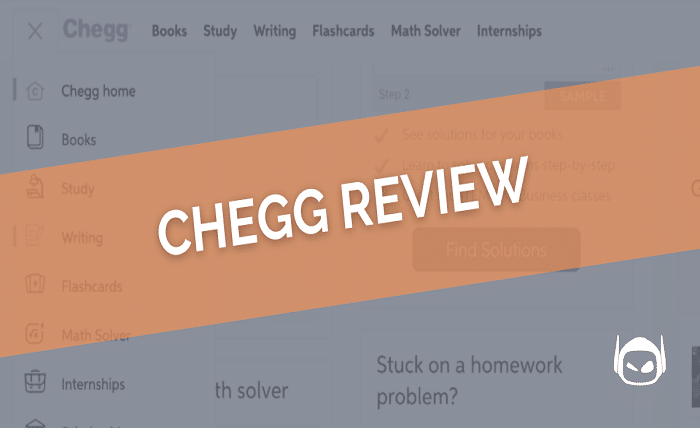Legitimate Alternatives to Chegg Bypass for Effective Learning

Introduction
Chegg has become a go-to platform for students worldwide, offering textbook solutions, study help, and expert Q&A services. However, its subscription fees and restricted access can be challenging for many students. This has led to an increased search for “Chegg bypass” methods, as students aim to maximize their academic resources without breaking the bank.
In this blog post, we explore what Chegg bypass means, why students look for it, and ethical ways to access educational resources. We’ll provide seven in-depth subheadings to guide you through every aspect of this topic.
What Does Chegg Bypass Mean?
The term “Chegg bypass” typically refers to finding ways to access Chegg’s premium content without paying for a subscription. Chegg offers solutions to textbook problems, expert Q&A, and more, but these are often locked behind a paywall. Bypassing Chegg can involve workarounds, tools, or alternative resources that provide similar information for free.
Understanding Chegg bypass methods is important because it touches on ethics, legality, and the need for affordable educational tools. Many students face financial constraints, making it difficult to afford a premium Chegg account.
Why Do Students Search for Chegg Bypass Options?
Students search for “Chegg bypass” solutions for several reasons:
- Cost of Subscription: A standard Chegg subscription can cost upwards of $15 per month, which may not be affordable for all students.
- Limited Free Access: Free trials are limited, and accessing answers beyond the trial requires payment.
- Immediate Need for Solutions: During exam seasons, students may need instant access to study materials.
- Global Accessibility: In some regions, students face payment restrictions or lack access to credit cards.
Understanding these reasons can shed light on the growing popularity of Chegg bypass solutions and the need for affordable educational tools.
Popular Chegg Bypass Methods
Several methods are commonly used by students to bypass Chegg restrictions. These include:
- Free Trial Exploitation: Creating multiple accounts to take advantage of Chegg’s free trial.
- Online Forums and Communities: Websites like Reddit and Quora often have users sharing Chegg answers.
- Chegg Alternatives: Platforms like Course Hero, Khan Academy, and Slader offer similar resources.
- Browser Extensions: Certain browser tools claim to unlock premium content, though these come with risks.
While these methods may work, they raise questions about ethics and legality, which we’ll address later in this post.
Ethical Considerations of Chegg Bypass
Using Chegg bypass methods raises several ethical and legal concerns:
- Copyright Infringement: Accessing Chegg’s paid content without permission may violate copyright laws.
- Fair Use: Sharing or using bypassed content might not fall under fair use policies.
- Impact on Educational Integrity: Dependence on bypassed resources can hinder genuine learning.
Instead of focusing on bypassing Chegg, students should explore ethical alternatives that support their education without compromising legality or morality.
Best Alternatives to Chegg
If you’re searching for Chegg bypass options, consider these legitimate and often free alternatives:
- Open Educational Resources (OER): Many universities and institutions offer free textbooks and study materials online.
- Khan Academy: Provides free video lessons and exercises across various subjects.
- Library Resources: University libraries often have access to subscription-based educational tools.
- Course Hero and Quizlet: While some features are premium, they offer free resources as well.
Exploring these platforms can often provide the help you need without resorting to Chegg bypass methods.
How Chegg Addresses Bypass Attempts
Chegg actively works to prevent bypass methods. The platform has implemented:
- Account Monitoring: Detecting and banning accounts that exploit free trials.
- Encryption: Making it difficult for browser extensions to unlock content.
- Legal Action: Pursuing individuals or groups that distribute pirated content.
These measures highlight the importance of considering ethical solutions rather than engaging in Chegg bypass techniques.
Tips for Accessing Educational Resources Affordably
For students looking to avoid Chegg bypass but still access valuable educational resources, here are some tips:
- Utilize Free Trials Wisely: Plan your study schedule to make the most of Chegg’s trial period.
- Split Subscriptions: Share a Chegg account with trusted friends to reduce costs.
- Apply for Discounts: Some platforms offer student discounts or financial aid options.
- Explore Online Communities: Engage in forums and study groups to find collaborative solutions.
These tips can help you get the most out of your study tools without resorting to unethical practices.
Conclusion
While the term “Chegg bypass” reflects a growing demand for affordable education, it also raises important ethical and legal considerations. By exploring legitimate alternatives and adopting cost-effective strategies, students can enhance their learning experience without compromising their integrity. Always remember that education is about growth, and cutting corners may not yield the long-term benefits you seek.
FAQs
1. Is Chegg bypass legal? Chegg bypass methods often involve copyright infringement, making them legally questionable.
2. What are some free alternatives to Chegg? Platforms like Khan Academy, Open Educational Resources, and Quizlet provide free educational content.
3. Can Chegg detect bypass attempts? Yes, Chegg uses account monitoring and encryption to detect and prevent bypass methods.
4. Is sharing a Chegg account allowed? Chegg’s terms of service typically prohibit account sharing, but it is a common practice among students.
5. What’s the best way to afford a Chegg subscription? Consider using discounts, splitting costs with friends, or applying for financial aid programs.





